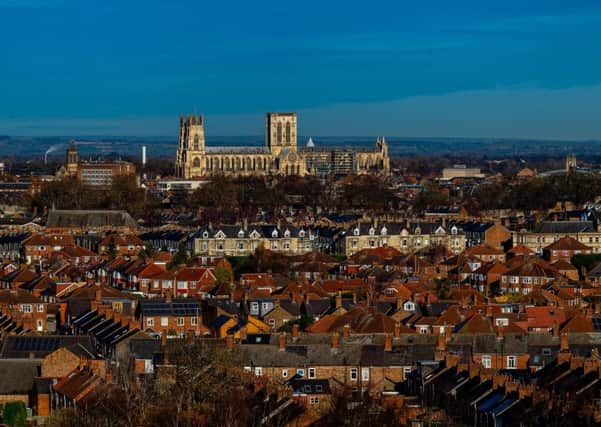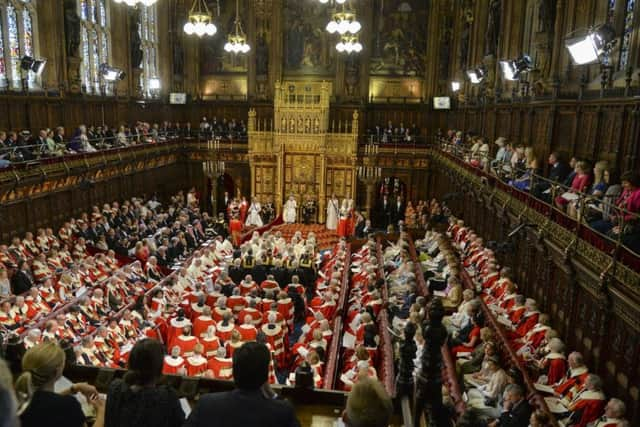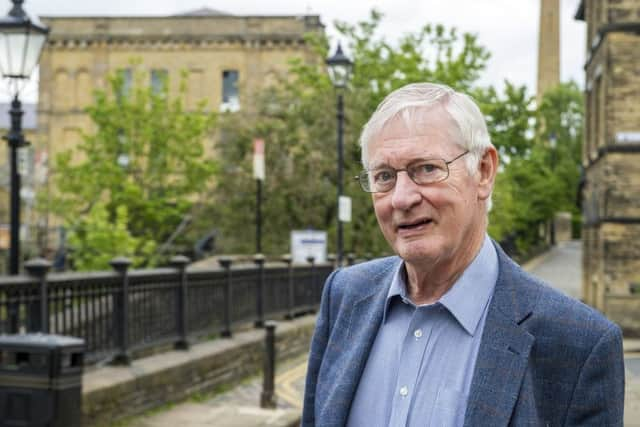House of Lords needs real reform before any move to York – William Wallace


In 25 years in the Lords, I have been struck by the impact that elected assemblies and devolved governments have had on the influence of Scottish, Welsh and Northern Irish interests in London.
Advertisement
Hide AdAdvertisement
Hide AdTime and again, discussions on policy initiatives include special consideration for the implications for these three nations, with opportunities for their Ministers to express their concerns. There’s no comparable consideration of any implications for England’s less prosperous regions. The emergence of elected mayors for cities like Manchester, Birmingham and Sheffield has not yet had much influence on the way Ministers and officials in London take decisions.


House of Lords move to York shows Boris Johnson is living in ‘cloud cuckoo land’ say Yorkshire peers
Yorkshire has a population as large as Scotland. Yet not only Scotland but also Wales and Ulster, smaller and poorer parts of the UK, now have built-in advantages in managing their own affairs and in bargaining with London.
Advertisement
Hide AdAdvertisement
Hide AdThat is why political leaders across Yorkshire have supported the case for a ‘One Yorkshire’ regional body, rather than the smaller city regions which the Conservative Government has tried to force on us instead. The presence in Parliament of new Conservative MPs from the region is already pushing Boris Johnson to pay more attention to our needs. We look to these new MPs to support the case that council leaders from all parties are pressing.


Over the past 50 years, local and regional authorities have seen their financial resources and their administrative capabilities reduced, while more and more powers have been transferred to London.
I recall when the West Riding had one of the UK’s best educational authorities, experimenting with new teaching methods and subjects. Now Ofsted inspectors enforce detailed instructions laid down by Ministers in London. Local authorities financed and ran their own transport services, as well as a range of social services, and support for local enterprises, which they can no longer afford.
Successive Conservative governments have mistrusted local authorities in the North: mostly Labour-led, or sometimes Liberal Democrat, often committed to spending which Conservatives disapproved of.
Advertisement
Hide AdAdvertisement
Hide AdTony Blair’s Labour government allowed Scots and Welsh to join Ulster in taking control of regional and local administration, but did not slow the transfer of power from Northern authorities to London. The economic and political revival of the North of England cannot be successfully planned and carried out from Westminster. It has to be led and managed, in large part, from within the region itself.
Reform of the Lords is long overdue. When I was appointed, in 1995, I hoped that I would be able, within 10 years, to stand for election as a Yorkshire representative in a reformed house.
Blair’s Labour government excluded most of the hereditaries in 1997 – the first stage of necessary reform – but never took the issue further.
In the coalition Government Liberal Democrats insisted on introducing a Bill to create a largely-elected second chamber – but Conservative backbenchers opposed it, the Labour front-bench was suspicious, and it failed. There’s little argument over what sort of second chamber we need. It should be elected on a regional basis, with longer terms than MPs. We need an effective second chamber. The Lords has become much busier since I joined, examining the details of legislation that the Commons have scarcely examined, which Ministers had therefore not had to justify.
Advertisement
Hide AdAdvertisement
Hide AdThe Conservative manifesto for December’s election promised to set up a new ‘commission on the constitution, democracy and rights’, to start before the end of 2020. Boris Johnson wants it to focus on strengthening the power of government over parliament, and curbing the independence of judges; but it cannot avoid addressing the wider popular disillusion with democratic politics and our political parties. That means strengthening local democracy, returning power from London to England’s regions, cities and towns, reshaping both Houses of Parliament and changing our grossly outdated voting system.
Sending an unreformed Lords to York is a gesture. Tackling the underlying imbalances of the English system of government is a far larger task. It requires moving power, money and people out of London to regional and local authorities. It means tackling our antiquated constitutional structures. Gestures are easy to make: reshaping our imperfect democracy is a much more important challenge.
Lord Wallace of Saltaire is a Lib Dem peer. He was a Minister in the 2010-15 coalition Government.